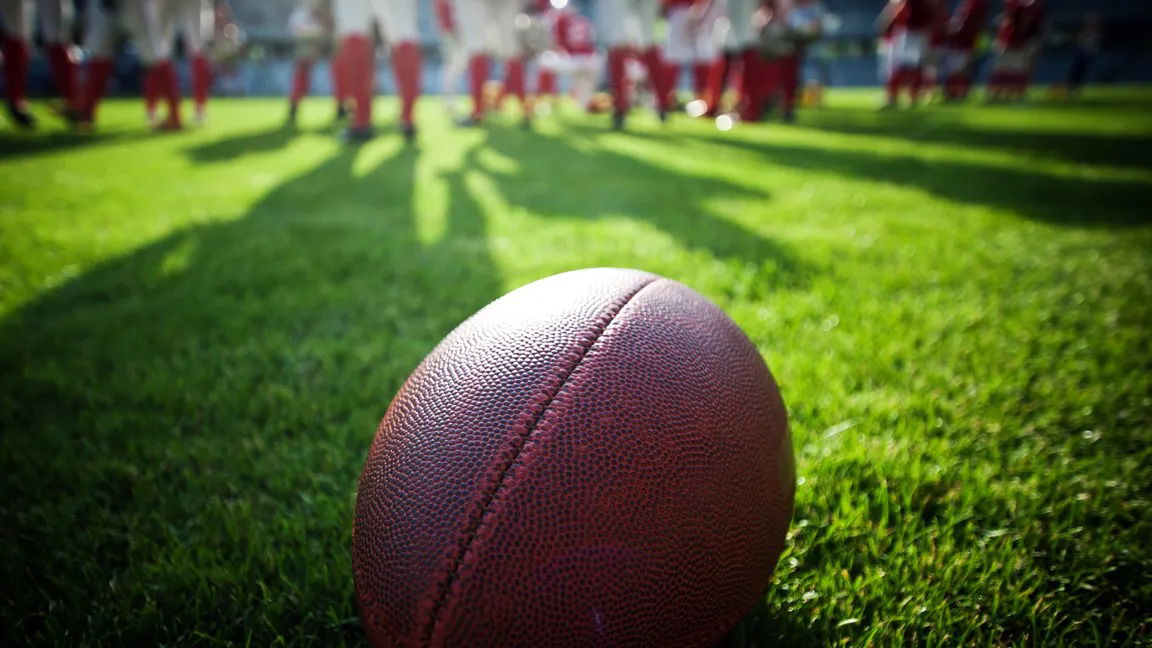

The power struggle in college sports just hit a new gear—and this time, it might spell the end for the NCAA as we know it. For years, the NCAA has clung to control over college athletics. But behind the scenes, the real power players—the SEC, Big Ten, Big 12, and ACC—have quietly been building something far more influential. As Washington bickers over NIL legislation and proposed federal commissions stall, the Power Four aren’t waiting around. They’re drawing their own playbook—and it’s one that could sideline the NCAA permanently.
Watch What’s Trending Now!
The shift began with a nuclear move: the creation of a first-of-its-kind agreement aimed at preventing schools from hiding behind state NIL laws and dodging the rules of a newly proposed governing body, the College Sports Commission (CSC). On May 24th, analyst Adam Breneman lit up the story with a bold revelation.
ADVERTISEMENT
“Power Four conferences are taking all the power. They are drafting a first-of-its-kind document that could change the game completely,” Breneman said. “It intends to prevent schools from using their state laws to violate the new enforcement rules on NIL and even waiving their right to sue any decision made by the college sports commission. This document would bind institutions to the college sports commission even if their State law is contradictory. This gives more power to the conferences than NCAA.”
View this post on Instagram
ADVERTISEMENT
According to Breneman, “Conferences can kick you out if you don’t sign.” The implications? Massive. If a school doesn’t sign, it not only risks getting booted from its conference but also being blackballed by other Power Four programs—potentially shutting it out of premier scheduling and revenue opportunities.
“You have to sign it or we don’t play you,” one athletic director told Yahoo Sports. “As a condition of membership, you must comply with the settlement and enforcement,” said a power conference president with knowledge of the document. So what’s happening?
ADVERTISEMENT
New NIL game, New referee
This sweeping power shift ties directly into the evolution of NIL—where college athletes have gone from unpaid talent to million-dollar influencers. Since June 2021, when the NCAA allowed athletes to profit from their name, image, and likeness, things have moved fast. What started as a simple endorsement era quickly exploded into state-by-state NIL laws, booster-funded deals, and athletes raking in money while the NCAA scrambled for control.
ADVERTISEMENT
Now, the House settlement, a legal agreement expected to go into effect July 1, 2025, could accelerate things even more. The deal allows schools to directly pay athletes for NIL while capping payments and regulating the system through a newly created enforcement body—the CSC.
The key enforcement tool in this setup? A Deloitte-run NIL clearinghouse called “NIL Go.” This body would use algorithms to determine the market value of NIL deals and block those that don’t pass the fairness test—especially those from shady booster collectives. They will review all deals over $600 and block those deemed outside “fair market value.” At ACC spring meetings, Deloitte reps revealed that 70% of past booster NIL deals would have been rejected by NIL Go, but 90% of public company deals would have been approved. This clearly suggests many booster deals were inflated and didn’t follow the rules.
ADVERTISEMENT
The Power Four’s proposed agreement would force schools to abide by CSC rulings—and if they don’t? Legal or not, they’re out. But there’s a legal minefield here. As Gabe Feldman, Tulane sports law professor, explained: “Arbitration itself isn’t surprising. But saying that you agree not to follow your state law… that may or may not be enforceable.” He added, “No matter what the sides do, they’re going to be sued. This is an effort to rein in the lawsuits. It’s just not clear how enforceable all these provisions will be.”
Meanwhile, states like Tennessee are already drawing their own lines. Their recently revealed Senate Bill No. 536 gives schools legal cover to bypass any NCAA or CSC rule that contradicts state law—including shielding them from being kicked out of a conference.
ADVERTISEMENT
Ramogi Huma, executive director of the National College Players Association, didn’t mince words: “This affiliation agreement is a literal smoking gun in liability for public universities.”
The tension here is undeniable: schools are being asked to sign away legal rights, override state protections, and subject themselves to rulings from a private commission operating largely out of the public eye. In exchange? They stay in the game.
The document, still in draft form, has already circulated among school presidents, athletic directors, and legal counsel. Many have voiced concern, but others see it as the only way to bring order to the NIL chaos.
ADVERTISEMENT
Once Judge Claudia Wilken rules on the House settlement, the real pressure begins. Either schools sign the agreement—or risk being left behind in a new college sports order run not by the NCAA, but by the Power Four cartel. Mit Winter, a sports attorney who advises collectives, warned: “Even if Judge Wilken approves the House settlement, her order will not address whether new NCAA rules that come out of the settlement comply with antitrust law.” In short, expect lawsuits.
The NCAA used to be in charge of college sports. But with this new agreement, the top four conferences are making their own rules, pushing the NCAA aside. They’re saying: play by our rules, or you don’t play at all. But as this power struggle continues, who’s truly looking out for the athletes? Because in this new age of NIL, it’s about more than just money—it’s about who controls the game.
ADVERTISEMENT
ADVERTISEMENT
ADVERTISEMENT
ADVERTISEMENT
.png)
.png)
.png)



